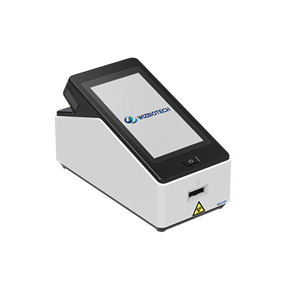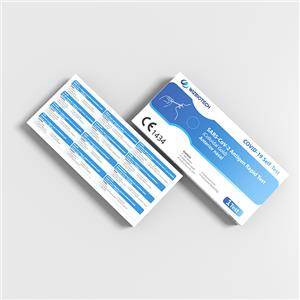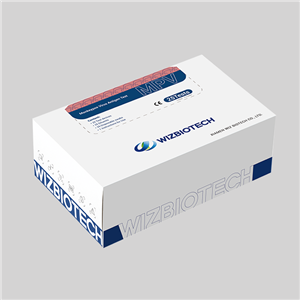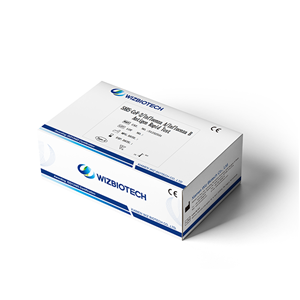Comparison of HIV test reagent cards on the market
HIV is a serious infectious disease, and timely testing is critical to controlling its spread. There are many different types of HIV test cards on the market, including HIV blood test, HIV saliva test and HIV urine test. This article will compare these three detection reagent cards.
Detection principle
Using the principle of immunochromatography (including colloidal gold and colloidal selenium), double antigen sandwich method was used to detect HIV antibodies (third generation).
Detection advantage
The three rapid detection reagents have the characteristics of convenience, speed and safety, do not rely on special instruments and equipment, and have low requirements for operation technology. The sensitivity and specificity were higher than 99%. Reagent reaction time is short, 20 minutes to obtain results.
HIV antibody window period
After infection with AIDS is not immediately able to detect whether the infection, there is a window period of detection, that is, from HIV infection to the blood can detect antibodies or nucleic acid period. The window period of rapid reagent antibody detection in blood is 3-6 weeks (the window period of different individuals is different, the earliest 3 weeks, the latest 6 weeks, most of the 3-4 weeks); Saliva and urine rapid reagent window period is relatively long, 4-12 weeks.

Detection schedule
After 3 weeks of high risk can arrange their own testing (high risk is less than 6 weeks, it is recommended that the blood rapid reagent), the result is negative, then the possibility of not infected is relatively large. After 4 weeks continue to self-test, still negative, the possibility of infection excluded about 95%. The test continues at week 5 and 6, and if it is still negative, the possibility of infection can be ruled out. If urine and saliva tests are used, the possibility of infection can be ruled out after 12 weeks (excluding immunosuppressants and HIV blocking drugs, and there is no high-risk behavior during this period).
When choosing an HIV test reagent card, you need to consider your own situation and needs. If you need fast and accurate results, you can choose HIV blood test reagent; If you do not like to draw blood, you can choose HIV saliva test reagent; If you want to test at home, you can choose a rapid urine test for HIV. No matter which test reagent card is selected, it is necessary to pay attention to the window period and review it in time to ensure the accuracy of the results.
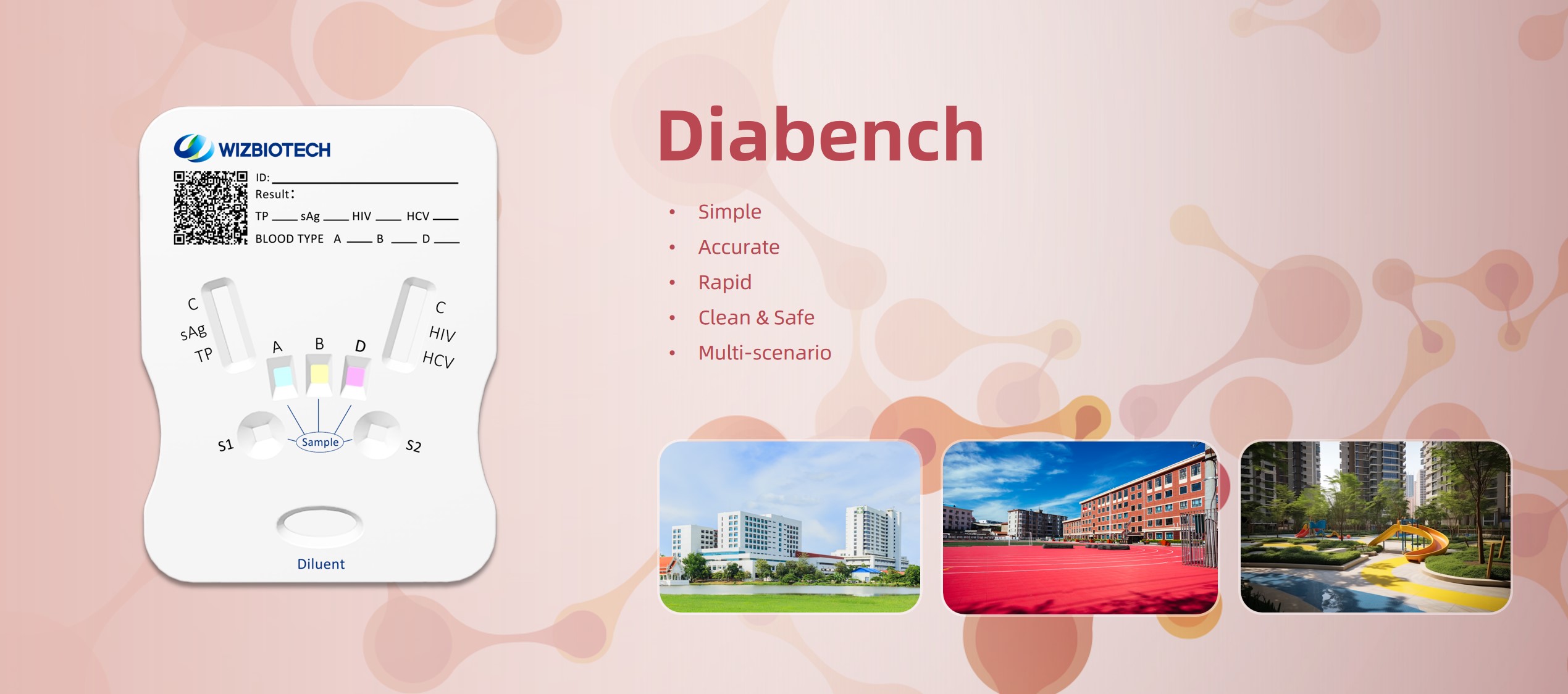
When handling the HIV test reagent card, you need to follow the steps in the instructions. First of all, prepare the sample collection equipment, and then collect the sample according to the instructions. The sample is then dropped onto the test card and the result is read after the specified time. If the result is positive, prompt medical attention is needed for confirmation testing and treatment.
Wizbiotech has independently developed a five-card test reagent for infectious diseases -Diabench, which can detect human immunodeficiency virus (HIV), hepatitis B virus (HBsAg), hepatitis C virus (HCV), syphilis (TP) and human blood type, which is of great significance for timely blocking the transmission of infectious diseases. It can provide important reference information for medical operations such as blood transfusion and organ transplantation to ensure medical safety. The detection reagent can be applied to major medical institutions, schools, community health service centers and other places to improve the accuracy and efficiency of infectious disease detection and escort people's health. It is hoped that the test reagent can be widely used, based on the comparison of HIV test reagent cards in this paper, it will be helpful for everyone to choose and operate HIV reagent cards. Welcome the hospital purchasing department and related institutions to consult and place orders, we will provide the best quality medical services for your hospital to provide better support and help. We look forward to working with you to safeguard public health.

